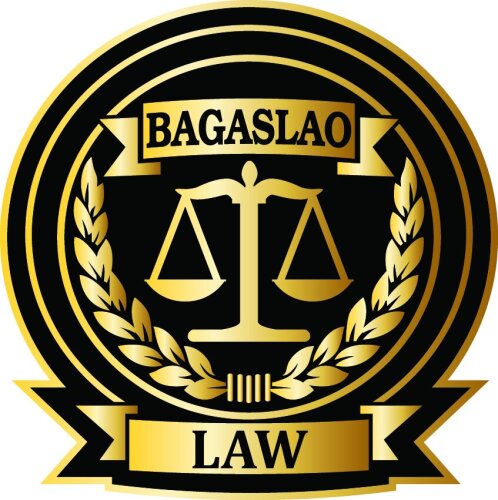Best Will & Testament Lawyers in Canada
Share your needs with us, get contacted by law firms.
Free. Takes 2 min.
Or refine your search by selecting a city:
List of the best lawyers in Canada
About Will & Testament Law in Canada
The law concerning Wills and Testaments in Canada governs the distribution of a person's estate after their death. A Will is a legal document that specifies how a person’s assets and property are to be distributed upon their passing and may also name guardians for any minor children. Canadian Will and Testament laws are primarily governed by provincial and territorial legislation, meaning the rules and requirements can vary depending on where you reside. Generally, for a Will to be valid, it must be in writing, signed by the testator, and witnessed by two individuals who are not beneficiaries.
Why You May Need a Lawyer
While it is possible to create a Will without legal assistance, there are several situations where consulting a lawyer can be beneficial:
- Complex Estates: If your estate is large or complicated, involving numerous assets and beneficiaries.
- Blended Families: When there are stepchildren or multiple marriages, ensuring clear and fair distribution can be complex.
- Business Ownership: Distribution of business shares or interests can require special provisions.
- Dispute Mitigation: To prevent family disputes or challenges to the Will.
- Tax Implications: Understanding and planning for tax liabilities on your estate.
- Updating Old Documents: A lawyer can ensure your Will is up-to-date with current laws and circumstances.
Local Laws Overview
Each Canadian province and territory has its own laws governing Wills and Estates. Here are some key aspects:
- Age Requirements: Generally, individuals must be 18 years or older to create a valid Will, though exceptions exist.
- Testamentary Freedom: Individuals can decide how to distribute their estate, but must make adequate provision for dependents.
- Formal Requirements: Wills must be written, signed, and witnessed according to specific regulation, failing which they may be invalid.
- Executor Appointments: An executor is responsible for carrying out the instructions in the Will.
- Probate Process: The legal process of validating a Will and executing it through the courts.
- Intestate Succession: If a person dies without a Will, their estate is distributed according to local laws.
Frequently Asked Questions
1. What happens if I die without a Will in Canada?
If you die without a Will, your estate will be distributed according to your province or territory's intestacy laws, which may not align with your wishes.
2. Can I write my own Will?
Yes, you can write your own Will, but it must meet provincial legal requirements to be valid and it is advisable to consult a lawyer to avoid mistakes.
3. How often should I update my Will?
You should review and potentially update your Will whenever there is a major life change, such as marriage, divorce, or the birth of a child.
4. Who can contest a Will?
Individuals who may have standing to contest a Will include spouses, children, or other dependents who were inadequately provided for in the Will.
5. Can my executor be a beneficiary?
Yes, an executor can also be a beneficiary of the Will.
6. Do I need a lawyer to probate a Will?
While it's possible to probate a Will without a lawyer, it can be complex, and legal advice is often recommended, particularly for larger estates.
7. Are online Wills legal in Canada?
Yes, as long as they comply with provincial laws regarding execution and witnessing, online Wills can be legal. However, a lawyer's review is advisable.
8. What is a living Will?
A living Will, known in Canada as an advance directive, outlines a person’s healthcare wishes in the event they become incapacitated.
9. How can I reduce estate taxes?
There are strategies to reduce estate taxes, like gifting assets during your lifetime or setting up trusts, which should be discussed with a lawyer.
10. What if I live abroad but own property in Canada?
It’s important to have a Will that addresses Canadian assets to ensure they are distributed according to local laws and your wishes.
Additional Resources
For more information on Wills and Testaments in Canada, consider exploring the following resources:
- Provincial and Territorial Government Websites - for specific information on local laws.
- The Canadian Bar Association - for general information on estate law.
- Estate Law Societies - various provincial bodies that regulate estate law practice.
- Public Legal Education and Information Service - which provides free legal information in many provinces.
Next Steps
If you are seeking legal assistance for Will and Testament matters, consider taking the following steps:
- Consult with a Lawyer: Contact a lawyer who specializes in estate planning to discuss your specific situation.
- Gather Documents: Prepare any necessary documents, such as existing Wills, lists of assets, and personal information for your meeting with a lawyer.
- Review and Update: Periodically review your Will to ensure it is up-to-date with your current wishes and legal requirements.
- Inform Executors & Beneficiaries: Communicate with those named in your Will to ensure they understand their roles and your intentions.
Ensuring your Will is properly drafted and executed can provide peace of mind and safeguard your wishes for the future.
Lawzana helps you find the best lawyers and law firms in Canada through a curated and pre-screened list of qualified legal professionals. Our platform offers rankings and detailed profiles of attorneys and law firms, allowing you to compare based on practice areas, including Will & Testament, experience, and client feedback.
Each profile includes a description of the firm's areas of practice, client reviews, team members and partners, year of establishment, spoken languages, office locations, contact information, social media presence, and any published articles or resources. Most firms on our platform speak English and are experienced in both local and international legal matters.
Get a quote from top-rated law firms in Canada — quickly, securely, and without unnecessary hassle.
Disclaimer:
The information provided on this page is for general informational purposes only and does not constitute legal advice. While we strive to ensure the accuracy and relevance of the content, legal information may change over time, and interpretations of the law can vary. You should always consult with a qualified legal professional for advice specific to your situation.
We disclaim all liability for actions taken or not taken based on the content of this page. If you believe any information is incorrect or outdated, please contact us, and we will review and update it where appropriate.
Browse will & testament law firms by city in Canada
Refine your search by selecting a city.















